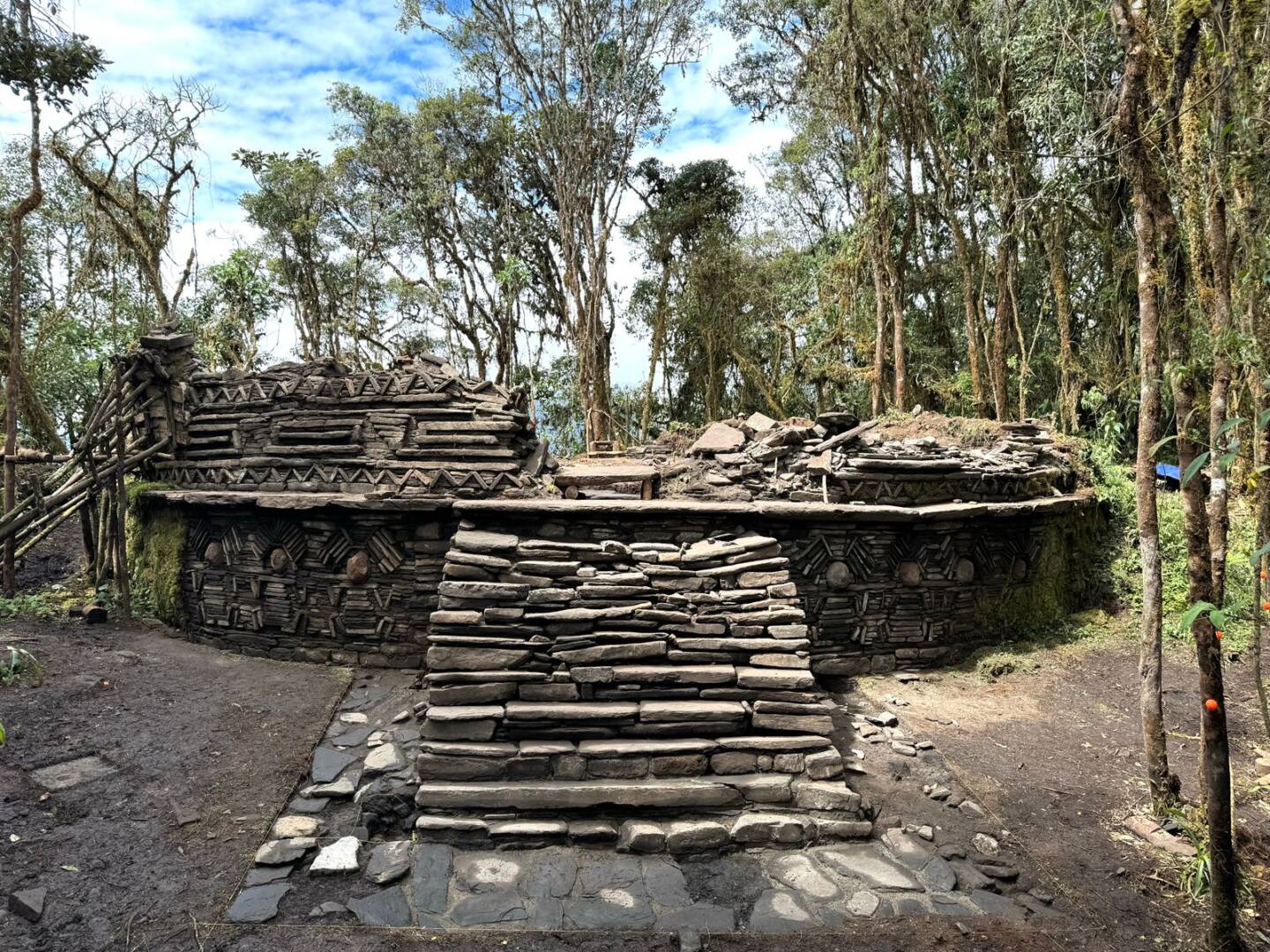Judi Lynn
Judi Lynn's JournalThis might be useful: "THERE WERE TWO 9/11s"
THERE WERE TWO 9/11s
(Victor Jara, "Nueva Cancion" ("New Music" Movement in Latin America during 1970's and 1980's)
Nueva Canción was a protest music movement in Latin America, particularly Chile, that flourished under President Salvador Allende but was suppressed by the Pinochet dictatorship. Musicians like Víctor Jara used their songs to advocate for social justice, left-wing politics, and indigenous culture, making them enemies of the state when Pinochet seized power in 1973. Jara was tortured and murdered by the regime, but his music became a powerful symbol of resistance against the dictatorship.
The Movement's Rise and Allende's Era
Suppression under the Pinochet Dictatorship (1973-1990)
The Legacy of Víctor Jara
https://tinyurl.com/bdhe667j
Anatomy of a coup plot: why Jair Bolsonaro is on trial
The former Brazilian president and seven close allies are awaiting judgment – and conviction is seen as highly likely
Tiago Rogero in Rio de Janeiro
Fri 5 Sep 2025 05.00 EDT
Luiz Inácio Lula da Silva was days away from taking office for his third term as the Brazilian president when soldiers from a special operations unit allegedly discussed the best way to kill him – possibly through poisoning or administering drugs that would trigger “organ failure”.
Investigators would later conclude that the supposed plan to assassinate the president-elect, his vice-president and a supreme court justice was one of many strands of a wider plot designed to keep the far-right leader Jair Bolsonaro in power.
At the end of 2022, Lula had just won the elections and was staying at a hotel in the capital, Brasília, while a police officer leaked details of his security apparatus to the special ops.
Meanwhile, Justice Alexandre de Moraes, already responsible for the main cases against Bolsonaro, was allegedly targeted by heavily armed soldiers who took up positions near his home, awaiting the final order to kill him.
According to the federal police and Brazil’s attorney general, the assassination plan was only aborted because a court session was delayed – and, more importantly, the commanders of the armed forces refused to endorse Bolsonaro’s coup plot.
More:
https://www.theguardian.com/world/2025/sep/05/jair-bolsonaro-trial

Bolsonaro ("Trump of the Tropics" ) and Trump


Dinner at Mar-a-Lago. I believe the Bolsonaro son standing next to Ivanka and Jared is Eduardo.
Critics Allege White House 'Propaganda' After US Bombs Boat Off Venezuela Coast
"This is not about drugs, crime, or national security," asserted one expert. "It is about oil that the US would rather not pay for."
Brett Wilkins
Sep 02, 2025
Critics of US imperialism on Tuesday responded with skepticism after President Donald Trump and Secretary of State Marco Rubio announced a deadly military strike on what they claimed was a boat linked to a drug cartel off the coast of oil-rich Venezuela.
Trump said on his Truth Social network that 11 people were killed by a US attack in "international waters" on a boat "positively identified" as being used by the Tren de Aragua gang. Rubio said the "lethal strike" targeted "a drug vessel which had departed from Venezuela."
On the first day of his second term, Trump signed an executive order designating drug cartels as foreign terrorist organizations. Last month, the president reportedly signed a secret order directing the Pentagon to use military force to combat drug cartels abroad, sparking fears of renewed US aggression in a region that has endured well over 100 US attacks, invasions, occupations, and other interventions since the issuance of the dubious Monroe Doctrine in 1823.
. . .
In an opinion piece published Tuesday by Venezuelanalysis, former Italian parliamentarian and organized crime expert Pino Arlacchi called the latest US aggression against Venezuela a "great hoax" and "geopolitics disguised as 'War on Drugs.'"
"This is not about drugs, crime, or national security," Arlacchi asserted. "It is about oil that the US would rather not pay for."
More:
https://www.commondreams.org/news/us-strikes-boat-off-venezuela
Trump's 4,500 troops can topple Nicols Maduro--not fix Venezuela
The US troops could dislodge the government in Caracas, but it won’t be enough to police a country ringed by drug cartels and insurgents.
Praveen Swami
03 September, 2025 08:00 am IST
The contest was not, most might agree, a fair fight. Eight-inch guns trained toward the walls of the Puerto Cabridis fort, the German naval ship SMS Vineta had brought an impressive fleet with it: The Falke, Gazelle, Panther, Charlotte, Stosch, and Restaurador, as well as the British Navy’s HMS Retribution and HMS Quail. The Venezuelan navy—“a few antiquated old tubs crewed by men who were more fishermen than sailors,” historian Nancy Mitchell records—soon surrendered. Two seized ships had to be scuttled, since they were too decrepit to be towed up the Orinoco River to the sea and on to Curaçao.
Leaving for home on 9 December 1902, the ships lobbed a few shells at Puerto Cabello. The Germans shelled Fort San Carlos de Maracaibo twice, since the guns of Panther jammed the first time—but the Venezuelan soldiers had by then evacuated the citadel, and no losses to life were caused.
This week, US President Donald Trump dispatched a somewhat more serious naval force into the waters off Venezuela. The fleet is reported to contain at least three guided-missile destroyers, as well as some 4,500 troops trained in amphibious operations. To many in the region, it seems like Trump is preparing to bring down the regime of Venezuelan President Nicolas Maduro, on whose head the United States has announced a bounty of $50 million.
Even though the stated mission of the naval fleet is counter-narcotics, the real message hasn’t been missed by anyone. Large Chinese investments are being made in Venezuela’s oil fields, which hold the world’s largest proven reserves. Following on from his earlier threats to take over the Panama Canal and his offer to commit United States troops to Mexico, Trump is letting it be known he intends for America to regain hegemonic power over the Western Hemisphere.
More:
https://theprint.in/opinion/trump-4500-troops-nicolas-maduro-venezuela/2734522/
The United States Uses a Fabricated Drug Charge for a Potential Strike on Venezuela
September 3, 2025
Vijay Prashad

Photograph Source: The White House – Public Domain
Suddenly, out of nowhere, the United States government agencies began to repeat the name “Tren de Aragu” as if it were the new al-Qaeda. In January 2025, the White House designated Tren de Aragua as a “foreign terrorist organisation”, and in March, the administration of US President Donald Trump evoked the Alien Enemies Act (1789) to warn against the ‘invasion of the United States by Tren de Aragua’. The US State Department, in February 2025, had declared that Tren de Aragua was an international drug cartel on par with such already recognised cartels as the Mexican Las Zetas (now Cártel del Noreste), Sinaloa, and Jalisco cartels as well as the Mara Salvatrucha (MS-13) that was formed in Los Angeles (US) and has now taken root in El Salvador thanks to a decade-long US deportation policy. Unlike Tren de Aragua, these other cartels are well-known, and their work has been frequently documented by the US Drug Enforcement Agency (DEA).
The most recent DEA report for 2025 confirms several facts about the drug cartels that traffic vast amounts of drugs (from cocaine to fentanyl) into the United States. It certainly has long sections on the Mexican and Salvadorian gangs, which have deep roots in the drug trade. Since 2019, the DEA and other agencies have tracked the movement of lethal drugs from being carted via the Caribbean and the Central American landline to the Pacific Ocean route. Drugs leave the ports of Guayaquil (Peru), Esmeraldas (Ecuador), and Buenaventura (Colombia) for the ports such as Puerto Escondido (Mexico) before they are carted into the US market. Over 80 percent of the lethal drugs go along this Pacific coastline, according to the United Nations World Drug Report 2025, while only just above 10 percent go across the Caribbean Sea. For a very long time now, the DEA has made the accurate assessment that most of the drugs entering the United States come from the Andes, from Central America, and from Mexico.
So, what does Tren de Aragua have to do with any of this, since it is a prison gang created inside the Tocorón prison in central Venezuela (about 150 kilometres away from Caracas)? The gang was created in 2012 by Héctor Rushtenford “Niño” Guerrero Flores (a convicted criminal who escaped from the prison in 2023 and has not been seen since then). Niño Guerrero’s gang, Tren de Aragua, is accused of taking advantage of the migration out of Venezuela to build its network in the United States and elsewhere across Latin America and to expand his trafficking opportunities through this migration web. However, it is more than likely that the actual network does not exist, but that former Tren de Aragua members have consolidated themselves as nodes for criminal activity in different places. Guerrero is wanted in Venezuela and has a migration alert from Chile, where he is believed to have taken refuge amongst the half million Venezuelans in this southern cone country. The United States government has targeted Tren de Aragua and Guerrero, offeringa $12 million reward for his arrest. But Guerrero is nowhere to be found.
A Fabricated Cartel
How does the United States government go from a legitimate concern for the entry of drugs into the country to sending seven US warships and one nuclear-power submarine, to encircle Venezuela for an “enhanced counter-narcotics operation”? How will these warships, which are just outside the Venezuelan sea boundary, do anything to either catch Guerrero, stop the Tren de Aragua, or prevent the cartels from carrying drugs to the United States? Guerrero is most likely not in Venezuela, his gang operates across Latin America and in the United States, and most of the drugs are carted through the Pacific Ocean and not the Caribbean Sea. So, what are these warships doing off Venezuela’s coastline, even though the US says that they are on an ‘anti-cartel mission’?
More:
https://www.counterpunch.org/2025/09/03/the-united-states-uses-a-fabricated-drug-charge-for-a-potential-strike-on-venezuela/
Trump Freaks Out After Canada - Mexico Just Built New Trade Corridor That Bypass US (YouTube)
From July:
Even US STUNNED By Mexico Just Joined Canada’s $120 Billion Trade Corridor BYPASSES Trump’s Tariff!
Over 100 Ancient Structures Just Uncovered in the Andes' Forbidden Cloud Forest -- A Hidden Civilization Unfolds
Buried deep in Peru’s cloud forest, a long-forgotten site is rewriting the story of a vanished culture. Researchers uncovered something far larger than anyone expected.
Juliette Dubois
Published on June 7, 2025
Read : 3 min

The Abiseo River National Park. Credit: WMF/Heinz Plenge Pardo | The Daily Galaxy --Great Discoveries Channel
High above sea level in the remote northern Andes, an extraordinary discovery has brought new clarity to one of Peru’s most mysterious archaeological landscapes. Hidden for centuries beneath dense vegetation in the Río Abiseo National Park, more than 100 previously unrecorded structures have been uncovered at the site of Gran Pajatén, offering rare insight into the elusive Chachapoya civilization.
The findings, announced in May by the World Monuments Fund (WMF), are the most significant at the site since the 1980s, when only 26 structures had been documented. With this new discovery, archaeologists are beginning to reevaluate the scale and sophistication of a society that once thrived along the eastern flanks of the Andes, between 6,500 and 9,800 feet above sea level.
A City Emerges From the Trees
Gran Pajatén lies within the boundaries of Río Abiseo National Park, a UNESCO Mixed World Heritage site known for its rich biodiversity and archaeological heritage. The site, first revealed to researchers in the 1960s, was long believed to be relatively modest in size. Now, newly identified buildings—among them ceremonial platforms, temple foundations, perimeter walls and staircases—suggest a far more expansive and organized settlement.
The structures are scattered across a steep forested slope, appearing to follow a deliberate urban plan consistent with Chachapoya and later Inca influence. Archaeologists say the arrangement of the site, combined with the discovery of nearby roads linking Gran Pajatén to other archaeological zones such as La Playa, Papayas, and Los Pinchudos, points to a well-connected regional network.
“This discovery radically expands our understanding of Gran Pajatén and raises new questions about the site’s role in the Chachapoya world,” said Juan Pablo de la Puente Brunke, Executive Director of WMF Peru. “Evidence now confirms that it is not an isolated complex but part of an articulated network of pre-Hispanic settlements from different periods.”
More:
https://dailygalaxy.com/2025/06/over-100-ancient-structures-just-uncovered-in-the-andes-forbidden-cloud-forest-a-hidden-civilization-unfolds/
- click link for images of this site from Google images -
https://tinyurl.com/a7ar3jtm
~ ~ ~



ETC.
~ ~ ~
Researchers uncover over 100 new structures at Gran Pajatén site
Researchers working in Peru have discovered more than 100 previously unknown structures at the Gran Pajatén archaeological complex, significantly expanding the 26 buildings known since the 1980s and revealing that the Chachapoya civilization, known as the "people of the cloud forest," lived at the site from at least the 14th century.
More:
https://www.perplexity.ai/page/researchers-uncover-over-100-n-W72uefhPRVO1rIRzaYixJg
Uruguay's Jos Mujica, world's 'poorest president', dies
9 hours ago
Gerardo Lissardy
BBC News Mundo

AFP/Getty Images
Former Uruguayan President José Mujica, known as "Pepe", has died at the age of 89.
The ex-guerrilla who governed Uruguay from 2010 to 2015 was known as the world's "poorest president" because of his modest lifestyle.
Current President Yamandú Orsi announced his predecessor's death on X, writing: "thank you for everything you gave us and for your deep love for your people."
The politician's cause of death is not known but he had been suffering from oesophageal cancer.
Because of the simple way he lived as president, his criticism of consumerism and the social reforms he promoted - which, among other things, meant Uruguay became the first country to legalise the recreational use of marijuana - Mujica became a well-known political figure in Latin America and beyond.
His global popularity is unusual for a president of Uruguay, a country with just 3.4 million inhabitants where his legacy has also generated some controversy.
In fact, even though many tended to see Mujica as someone outside the political class, that was not the case.
More:
https://www.bbc.com/news/articles/c0j71402z58o




Trump Ally Bukele Reportedly Set to Arrest Journalists Who Revealed His Secret Pact With Gangs
One critic said the Salvadoran president "wants to silence" the acclaimed digital news site El Faro "because they're shattering the myths of the Bukele administration."
Brett Wilkins
May 05, 2025
An internationally acclaimed digital news outlet in El Salvador said Monday that the administration of Salvadoran President Nayib Bukele is preparing to arrest a number of its journalists following the publication of an interview with two former gang leaders who shed new light on a power-sharing agreement with the U.S.-backed leader and self-described "world's coolest dictator."
"A reliable source in El Salvador told El Faro that the Bukele-controlled Attorney General's Office is preparing at least seven arrest warrants for members of El Faro," the outlet reported. "The source reached out following the publication of an interview with two former leaders of the 18th Street Revolucionarios on Bukele's yearslong relationship to gangs."
"If carried out, the warrants are the first time in decades that prosecutors seek to press charges against individual journalists for their journalistic labors," El Faro added.
Bukele responded to the interview in a Friday evening post on the social media site X that read in part, "It's clear that a country at peace, without deaths, without extortion, without bloodshed, without corpses every day, without mothers mourning their children, is not profitable for human rights NGOs, nor for the globalist media, nor for the elites, nor for [George] Soros."
While the pact between Bukele and gang leaders is well-known in El Salvador, El Faro—which has long been a thorn in the president's side—was the first media outlet to air video of gangsters acknowledging the agreement.
More:
https://www.commondreams.org/news/el-faro-warrants
- click link for image. Note Trump dragged out his envisioned new airplane model on the table for show and tell time. Jesus. -
https://assets.bwbx.io/images/users/iqjWHBFdfxIU/ihqe9tchcWnM/v1/-1x-1.webp


How the Biden administration helped avoid a coup in Guatemala
By Mary Beth Sheridan and Nic Wirtz
January 12, 2024 at 9:00 a.m. EST
- click link for image -
https://d1fc2293h78avp.archive.is/1NPgV/a7dba71384c1a9ba665f31f197dfa8bd569cebbc.avif
Guatemalan President-elect Bernardo Arévalo makes an appearance at a demonstration in support of his taking office at the Human Rights Plaza in Guatemala City on Sept. 18, 2023. (Luis Vargas/Anadolu Agency via Getty Images)
After a reform-minded professor won the presidency of Guatemala — one of the Western Hemisphere’s most notoriously corrupt countries — governments around the world watched the fallout with alarm.
Guatemalan authorities seized ballot boxes on dubious claims of fraud. They tried to dissolve the party of the winner, Bernardo Arévalo, and investigate him criminally. With months to go before he took office, the beleaguered president-elect warned of a “slow-motion coup.”
On Sunday, Arévalo is to be sworn in, in what could be a turning point for a nation that’s hemorrhaged migrants to the United States. He’s reaching Inauguration Day in large part because of the determination of Guatemalan citizens fed up with corruption. But U.S. diplomats played a key role, in one of the Biden administration’s most aggressive campaigns to shore up democracy in the hemisphere.
Behind the scenes were career U.S. bureaucrats with decades of experience in Latin America — the sort of briefcase-toting professionals who melt into the crowds on the D.C. Metro. They targeted Guatemalan politicians and influential business people with a blizzard of sanctions, stern public statements and quiet arm-twisting.
“I don’t think we would have made it if the U.S. didn’t get as involved as they did,” said Dionisio Gutiérrez, one of Guatemala’s richest business executives and an outspoken critic of corruption.
More:
https://archive.is/20240114141842/https://www.washingtonpost.com/world/2024/01/12/bernardo-arevalo-guatemala-inauguration-biden/#selection-439.0-565.196
Profile Information
Member since: 2002Number of posts: 164,067